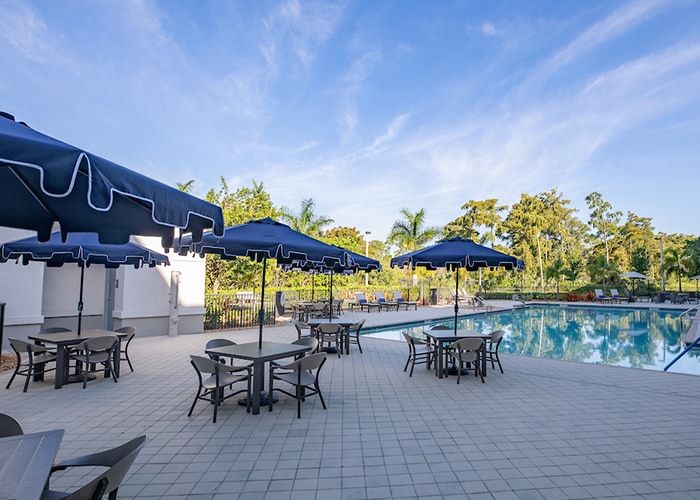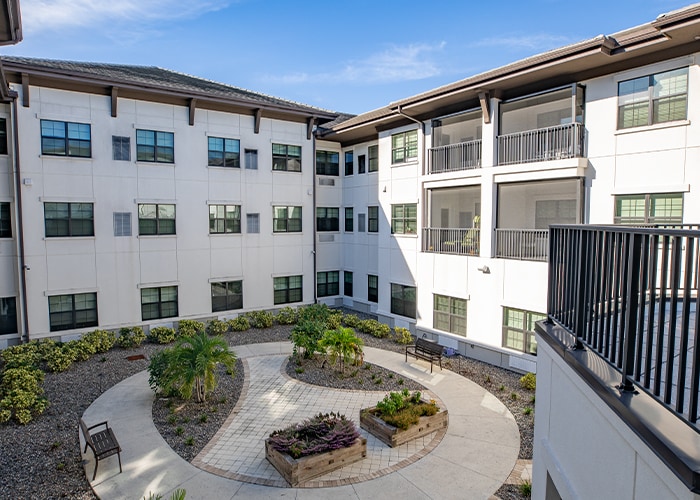Moving a loved one to an assisted living community is often a difficult decision, and it’s normal to experience feelings of guilt, doubt, or sadness. Many family members worry about whether they are making the right choice, how their loved one will adjust, and if they could have done more to provide care at home.
You can often ease these overwhelming feelings by educating yourself, communicating openly, seeking support, and focusing on the positives that assisted living provides your loved one.
Assisted living communities can enhance the quality of life for older adults by providing personalized care, encouraging social engagement, and offering a safe, supportive environment. You can ease the transition for both yourself and your loved one by understanding the reasons behind your feelings and reframing the decision as an act of love and support.
Understanding Assisted Living
Assisted living provides older adults the support they need for daily activities while helping them maintain independence. These communities offer a balance of personal care and social opportunities, allowing residents to enjoy a fulfilling lifestyle without the burdens of home maintenance or daily caregiving.
Many assisted living residents receive:
- Assistance with daily activities such as dressing, bathing, & medication management
- Nutritious meals & dining options tailored to dietary needs
- Social activities and events that encourage engagement & meaningful connections
- 24/7 professional staff to support safety & well-being
- On-site wellness programs to promote a healthy & active lifestyle
These services enhance comfort, safety, and quality of life, making assisted living a positive transition for many older adults.
Why Do Families Feel Guilty?
Feelings of guilt often arise because caregivers wish to provide the best care for their loved ones and may feel they are letting them down by transitioning them to assisted living. Some common sources of guilt include:
- A sense of responsibility or duty to care for aging relatives at home
- Worrying that a loved one may feel forgotten, abandoned, or lonely in a new setting
- You or family members previously assured your loved one they wouldn’t have to move into a care facility
- Concerns about how a loved one will adjust to their new home & routine
Recognize that assisted living is not a failure; it’s a thoughtful decision made with your loved one’s well-being in mind.
Overcoming Guilt During the Transition
Adjusting to assisted living takes time, but there are steps you can take to reduce feelings of guilt and make the transition smoother for your loved one.
1. Educate Yourself
Learn about the services, care, and opportunities available in assisted living. Understanding the benefits can reinforce that you are making a positive choice.
2. Openly Communicate
Talk with your loved one about their feelings and concerns. Acknowledging their emotions and involving them in the process can ease anxiety.
3. Seek Support
You are not alone in this experience. Join caregiver support groups or talk to others who have made a similar transition. Hearing from others can help normalize these feelings.
4. Focus on the Positives
Remind yourself of the reasons behind this decision. Assisted living provides safety, care, and opportunities for engagement that may not be possible at home.
How Assisted Living Supports Families
The move to assisted living benefits the resident and their family members. Providing full-time care at home can be physically and emotionally overwhelming. Assisted living relieves family caregivers from daily responsibilities while providing their loved ones the professional care they need.
Key Benefits of Assisted Living for Families
- Peace of mind: Knowing your loved one is in a safe, supportive environment with trained professionals.
- More quality time: Visits become more about enjoying each other’s company rather than managing daily tasks.
- Improved well-being: Residents engage in activities, social events, and wellness programs that enhance their overall happiness.
Focusing on these positive aspects can help ease feelings of guilt and reassure families that they are making a positive decision for their loved one’s long-term well-being.
Staying Connected After the Move
One of many families’ biggest concerns is staying connected with their loved ones after they move into assisted living. Thankfully, there are many ways to maintain a close relationship and support their transition.
Tips for Staying Connected
- Visit regularly by scheduling weekly or biweekly visits to spend quality time together
- Using technology like video calls, voice messages, and emails can help maintain frequent communication
- Send care packages like letters, photos, or favorite snacks to show your loved one you are thinking of them
- Participate in community events hosted by the assisted living facility to stay involved
- Support your loved one’s engagement in activities, classes, or social groups within their community
The transition into assisted living doesn’t mean losing your bond. Continuing to stay involved helps both you and your loved one feel at ease with this change.
Find Support & Compassion at Seascape at Naples
Moving a loved one to assisted living is a significant decision, but it prioritizes their health, safety, and well-being. While feelings of guilt are normal, remembering the positive impact of assisted living can help ease these emotions.
At Seascape at Naples, we provide a welcoming, supportive environment where residents can enjoy a vibrant and fulfilling lifestyle with personalized care. If you are considering assisted living for a loved one, our team is here to guide you through the transition with compassion and understanding.
Schedule a visit today to learn more about how Seascape at Naples can provide premier care for your loved one while offering peace of mind for your family.


























